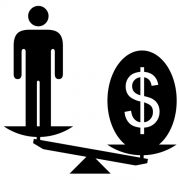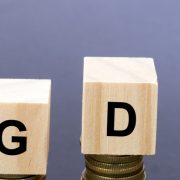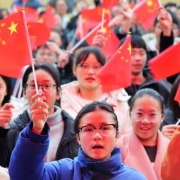Martin, you can never, ever trust the communists.” Those were the words of Martin Lee’s father to son Martin in 1949. Subsequent history vindicated his advice, or warning. Luckily the Lees were living in Hong Kong. It’s well known that the communism of the 20th century left behind a body count that The Black Book of Communism estimates to be 100 million.
Back in the 1980s, Hong Kong dissident Lee told journalist William McGurn about his father’s warning, and McGurn relayed it to readers in his most recent column for the Wall Street Journal. McGurn thinks the communists who lead the China of the present are pretty awful, even though the country’s broad economic liberalization has surely lifted “ordinary Chinese out of desperate poverty.” McGurn is simply not persuaded by the modern communists who “traded in Mao jackets for Brooks Brothers and sent their children to Harvard Business School.”
Ok, so China has some bad Communistleadership. That’s a given. But is it possible there’s a redundant quality to McGurn’s analysis? Consider Evan Osnos’s fascinating 2014 book about China, Age of Ambition. For many years Osnos served as Beijing bureau chief for The New Yorker. To some, his professional affiliations will disqualify him automatically as an out-of-touch elitist lefty, but that would be a mistake. McGurn is a “Main Street” man of the right, and the treatment of the protesters in China and Hong Kong plainly concerns him. So did this treatment concern Osnos.
At the same time Osnos acknowledged something that some on the right perhaps don’t. The focus on dissidents is itself a pretty rarefied activity. In writing his book, Osnos wondered in its pages if his journalistic interest in the romanticized dissidents wasn’t hiding a much bigger, and arguably happier story. In his own words, “the most famous image in China in the past thirty years was not of its economic rise but of the man standing in front of the tank near Tiananmen Square.” Osnos saw the flaw there given his acknowledgment that foreigners could “spend years in China without ever interviewing someone who had been tortured or locked up without trial.[my emphasis]” Translated, for the vast majority of Chinese citizens life is much freer, living standards exponentially greater, and the government itself somewhat of an afterthought. The rare dissident was largely “unknown to ordinary Chinese citizens,” and was much better known “in New York or Paris.”
Considering the communist party in China, Osnos observes that “At the lowest levels, the Party felt like a professional network.” Kind of like affiliation with Democrats and Republicans stateside? Without excusing the Party’s brutal, sickeningly murderous history for even a second (Osnos doesn’t shy away from the tragic fact that the “Great Leap Forward resulted in the world’s worst famine, which killed between thirty and forty-five million people”), it’s thankfully no longer what it was.
As McGurn well knows, true, collectivist communism is defined by horrifying desperation, endless lines at stores with bare shelves, and in its worst form, it’s all about killing. The China of today is nothing like that. It’s the opposite of communist, particularly in an economic sense. For an American to walk off the airplane there is for that American to arguably feel more at home than any Chinese citizen. All the street signs have English spelling, and then the shops and restaurants bring to mind a typical American city: McDonald’s, Starbucks, Pizza Hut, Burger King, Kentucky Fried Chicken, Apple Stores, Polo Stores, Sunglass Huts, etc. Communism equates with the worst kind of poverty, while the China of today symbolizes a remarkable drive to improve. It’s a country in a hurry, and reality supports this. This is a long way of asking if it’s the “communists” McGurn actually looks at skeptically, or instead people in high places.
McGurn writes that communism “has always been far more about” the “getting and holding [of] power, rather than any economic arrangement.” Sure, but if so, how does this make it much different from politics in general, including politics as practiced here in the U.S.? Billions will be spent on the upcoming presidential elections despite the federal government’s “few and defined” powers. Is there jockeying for power at work?
Osnos described returning to China in 2005, and witnessing a fever. “The greatest fever of all was aspiration, a belief in the sheer possibility to remake a life.” Which raises a basic question: if some free-thinking scholar attached Osnos’s line to de Tocqueville as he described 19th century America, would anyone but the most knowledgeable Tocquevillian question the scholar about the line being de Tocqueville’s?
Thinking about the quote in terms of China’s amazing economic evolution, it’s a reminder that the Chinese people are quite a bit freer than critics want to admit. Sorry, but suffocated people couldn’t have rebuilt Chinese cities into architectural marvels, with skyscraper density that makes Manhattan seem undeveloped by comparison. Thoroughly muzzled people wouldn’t be gorging on all things American at a rate that sets “communist” China up to soon be the largest market in the world for capitalist-produced American plenty.
Still, McGurn laments the present Chinese leadership. It sadly arrests dissidents, and so can’t be trusted. Per McGurn, we were duped in a sense for believing that having shed the Party’s thoroughly murderous past, its modern leaders would be “transformed into Jeffersonian democrats who play by liberal rules.” Sure, but who really believed that? Did even Thomas Jefferson believe those who came after him would be “Jeffersonian democrats”?
It’s worth asking when it’s remembered that in the last six or seven weeks the world’s most dynamic economy was transformed by the U.S. political class into command-and-control. Due to the imposition, tens of millions of Americans are out of work, millions of businesses are bankrupt or rushing toward bankruptcy, and there’s mass desperation as people wonder how they’ll start earning again thanks to a political crack-up that McGurn’s editorial page has described with growing contempt.
It’s worth thinking about as American conservatives continue to wring their hands about the Chinese communists. McGurn repeats at column’s end “Never, ever trust the Communists.” It says here there are tens of millions of Americans who would quickly correct him with “Never, ever trust politicians.”
John Tamny is editor of RealClearMarkets, and Vice President at FreedomWorks. This article first appeared at realclearmarkets.com.













